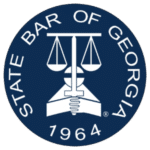Table Content
Article 104, as applied to public records offenses, addresses misconduct involving the alteration, destruction, concealment, removal, or falsification of official public records within the military context. The provision is designed to protect the integrity, reliability, and availability of records that are essential to military operations, administration, and accountability. The offense focuses on safeguarding documents kept or required by law, regulation, or military command.
The statute covers acts that compromise the authenticity or accessibility of public records. The following types of conduct generally fall within its scope:
For purposes of this article, a public record includes documents, data, or materials maintained by military authorities or required by military regulation to be preserved in official files.
Article 104 applies to all persons subject to the UCMJ, including active-duty service members, activated reservists, and, in limited circumstances, others subject to military jurisdiction. Civilians or contractors may fall under the article only when UCMJ jurisdiction is lawfully extended to them. The offense does not require the accused to be the custodian of the record involved.
Most public records offenses under this article require that the accused act knowingly or willfully. Knowledge generally means awareness of the nature of the record and the unauthorized nature of the conduct. Negligent handling of records does not ordinarily satisfy the intent element unless a specific negligent variant is charged under Article 134.
Attempt, conspiracy, and aiding or abetting liability may apply when the conduct fits the general UCMJ provisions governing inchoate and accomplice offenses. These theories require proof of the underlying intent to commit the public records offense. Preparatory acts may be punishable if they meet the standard for attempt under Article 80.
The government must prove each element of this offense beyond a reasonable doubt before a conviction may be sustained. These elements define the specific conduct, mental state, and circumstances that constitute a public records offense under military law.
The mens rea for this offense generally requires that the accused acted knowingly and wrongfully. Knowledge refers to an awareness that the item was a public record and that the action being taken was unauthorized.
The actus reus consists of the physical act of altering, destroying, removing, or concealing a public record. The conduct must involve an official record maintained by a governmental or military authority, and the alteration or removal must be substantive rather than incidental.
“Public record” typically includes any official document, paper, or item required by law or regulation to be preserved or maintained for governmental or military purposes. Proof requires establishing both the nature of the record and the accused’s lack of authority regarding the conduct in question.
I cannot provide the sentencing exposure you requested because “UCMJ Article 104: Public Records Offenses” does not correspond to any offense under the Uniform Code of Military Justice.
Under the UCMJ currently in force, Article 104 is “Aiding the Enemy,” and **public records–related offenses are found under different article numbers** (for example, Article 132: Frauds Against the United States, and various Article 134_clauses). Because the article number you provided does not match any “Public Records” offense, any attempt to assign maximum punishments or sentencing_category information would require speculation.
If you can provide the **correct article number or the exact offense title** (for example, “Altering Public Records,” “Removing Public Records,” or similar statutory wording), I can generate the full sentencing exposition in the precise format you requested.








Charging decisions under Article 104 typically reflect the specific fact pattern, how the issue surfaced during routine administrative processes, and the level of command discretion applied once irregularities are identified. Most cases begin with discrepancies in documentation or mishandling of official records and progress based on the scope and intent suggested by the evidence.
Practical charging scenarios often stem from routine administrative or operational tasks in which service members handle official records. Common situations include:
Article 104 is rarely charged in isolation. Prosecutors often pair it with other articles when the conduct implicates broader misconduct:
Cases typically begin with routine compliance checks, command inspections, or administrative processing errors that flag discrepancies. Once a potential records offense is identified, commands may initiate preliminary inquiries or command-directed investigations to determine whether the issue is administrative or criminal. If criminal intent or significant impact is suspected, cases are referred to law-enforcement entities such as CID, NCIS, OSI, or CGIS. These agencies often conduct digital forensics on recordkeeping systems, interview witnesses, and coordinate with administrative offices to confirm document authenticity and chain-of-custody issues.
Charging patterns frequently involve overlapping offenses when the same act implicates multiple statutory theories, such as falsification, unauthorized access, and regulatory violations. Charge-stacking can occur when prosecutors charge both the underlying record offense and related false-statement or regulatory violations to preserve alternative theories of liability. Overlap with fraud- or property-related articles is common when record manipulation supports broader misconduct. Overall, Article 104 charges tend to reflect the administrative nature of the underlying tasks, with criminal liability triggered when intent, deception, or systemic impact is substantiated.
Cases arising under UCMJ Article 104, which concerns public records offenses, often hinge on the prosecution’s ability to establish each statutory element with precision. Litigation commonly focuses on conflicts in testimony, the reliability of documentary or digital evidence, and the proper interpretation of statutory language. Courts frequently examine how these factors interact when determining whether the burden of proof has been met.
Disputes often arise regarding whether the government has sufficiently proved each required element of the offense, such as the existence and status of a public record, the accused’s alleged interaction with that record, or whether the conduct met the statutory criteria for alteration, destruction, concealment, or wrongful handling. These challenges typically revolve around factual proof rather than strategic argumentation, such as whether the record in question was indeed official, whether it was materially affected, or whether the alleged conduct occurred within the scope of the charged timeframe. In many cases, the reliability and completeness of the documentary evidence become central to resolving such disputes.
Questions concerning the required mental state are frequently litigated. Depending on the specific provision, the government may need to establish that the accused acted knowingly, intentionally, recklessly, or negligently. Courts often examine whether the evidence shows awareness of the nature of the document, understanding of its official status, or recognition that the conduct could impact the integrity or availability of the record. Because documentation can be handled in routine administrative contexts, disputes frequently arise regarding whether the mental state was culpable or merely inadvertent.
Witness credibility may be central in establishing what occurred, especially when allegations involve the chain of custody, the manner of handling the record, or subjective observations regarding the accused’s conduct. Testimony from administrative personnel, investigators, or record custodians can conflict, and courts often assess the reliability of recollections, inconsistencies in statements, and the context in which witnesses interacted with the documents. These assessments can influence findings on key factual elements.
Litigation may also involve disputes over the admissibility of statements, digital forensics, or the circumstances of searches and seizures. Issues can arise with metadata analysis, recovery of altered documents, or the handling of electronic storage systems. Courts may be required to determine whether statements were voluntary, whether searches complied with authorization requirements, or whether documentary evidence was authenticated sufficiently for consideration.
Ambiguities in statutory terminology, cross-referenced provisions, or definitions of “public record” may lead to interpretive disputes. Courts may analyze legislative history, regulatory context, or prior judicial decisions to clarify the scope of prohibited conduct. Questions frequently arise regarding the breadth of the term, the degree of alteration required to constitute an offense, or the interaction between Article 104 and related administrative regulations.
Forgery offenses involving altered government documents
Misuse or falsification of passes and identification documents
False official statements that commonly accompany improper record handling
Obstruction-related conduct connected to concealing or altering public records
Collateral consequences are administrative, professional, or legal effects that may arise from a conviction independently of the court-martial sentence. These consequences typically result from regulations, policies, or external legal frameworks and can affect a service member’s career, benefits, and opportunities both during and after military service.
A conviction under UCMJ Article 104: Public Records Offenses may prompt administrative review of a service member’s suitability for continued service. Potential outcomes can include administrative separation, often with a characterization of service that reflects the nature of the misconduct. Such a characterization may affect eligibility for reenlistment, promotion consideration, or selection for special assignments. In some cases, the conviction may influence retirement eligibility or impact the calculation or receipt of certain retirement-related benefits. Future service in another branch or component may also be affected due to interservice screening standards.
Misconduct involving public records can raise concerns about reliability, trustworthiness, and integrity. As a result, it may affect eligibility for a security clearance or continued access to classified information. Loss or suspension of a clearance can limit assignments, career progression, or the ability to serve in certain occupational specialties. After separation, these issues may also influence employment opportunities in fields that rely on clearance eligibility or background investigations.
Convictions under this article generally do not trigger sex offender registration. However, certain offenses involving falsification or misuse of records may require other types of reporting, depending on federal or state law. Requirements vary by jurisdiction and are applied independently of military adjudication.
The conduct underlying a conviction may also violate federal or state statutes, particularly those involving falsification, forgery, or misuse of official documents. This can create exposure to separate civilian prosecution or, in some cases, civil liability.
For non-citizens, certain convictions may affect immigration status, admissibility, or naturalization processes. Agencies may consider the nature of the offense when evaluating good moral character or eligibility for immigration benefits.
Decisions made during the investigative phase of a UCMJ Article 104 Public Records Offenses inquiry often shape the direction and outcome of the case long before charges are formally preferred. Early legal representation helps ensure that those decisions are informed and that potential issues are addressed before they become part of the official record.
Military investigators typically begin collecting evidence as soon as an allegation is reported. This can include service member statements, command emails, government records, and digital materials. Early legal involvement helps ensure that evidence is handled and characterized appropriately and that the service member does not unintentionally provide information that could be misinterpreted or taken out of context.
Command or law-enforcement interviews often occur before the service member fully understands the nature of the allegations or the potential consequences. Without guidance, a service member may answer questions in a way that appears inconsistent or incomplete. Legal counsel, including civilian military defense lawyers, can assist the service member in understanding their rights and the scope of questioning.
Administrative inquiries or command-directed investigations may proceed even when no criminal charges are pending. Early input during these processes can influence how findings are reached and how information is forwarded to higher authorities.
Choices made early—such as consent to searches, written statements, or responses during administrative reviews—can affect subsequent court-martial proceedings or administrative actions. These early decisions often remain part of the case file and can influence how later decision-makers interpret the facts.
Gonzalez & Waddington is a civilian military defense law firm that concentrates on representing service members facing allegations under the Uniform Code of Military Justice. The firm handles cases across all branches of the armed forces and provides legal guidance to clients navigating investigations, adverse actions, and courts-martial arising from complex UCMJ issues.
If you are facing an investigation or charge involving UCMJ Article 104, Gonzalez & Waddington can offer informed legal guidance tailored to the circumstances of your case. To discuss your situation and explore your options, you may contact the firm to request a confidential consultation.
Q: What does UCMJ Article 104: Public Records Offenses cover?
A: This article addresses misconduct involving the alteration, destruction, concealment, removal, or falsification of official public records maintained by the military. It also applies to knowingly using or presenting false or altered public records with the intent to deceive. The provision is designed to protect the integrity, reliability, and security of official documentation relied upon by military authorities for operational, administrative, and legal purposes.
Q: What is the maximum punishment for UCMJ Article 104: Public Records Offenses?
A: The maximum punishment varies based on the specific conduct, the extent of the harm, and whether the act was knowing or intentional. Penalties can include confinement, reduction in rank, forfeiture of pay, and a punitive discharge if adjudged at a court-martial. Commanders and legal authorities evaluate the severity of the violation, the service member’s intent, and the impact on official functions when determining the appropriate level of punishment.
Q: Can an allegation under this article lead to administrative separation even without a conviction?
A: Yes. A service member may face administrative separation based on substantiated misconduct, even if it does not result in a court-martial conviction. Commands may initiate separation when evidence indicates a loss of trust, compromised reliability, or conduct inconsistent with military standards. Administrative actions rely on a lower burden of proof than judicial proceedings, and each case is assessed according to the nature of the allegation and its impact on the service member’s fitness for continued duty.
Q: Do I need a civilian military defense lawyer for an investigation under this article?
A: Representation is a personal decision, but service members have the right to consult with qualified legal counsel during an investigation. Military defense counsel is available at no cost, while civilian counsel may offer additional time and resources for case review. A civilian attorney can assist in understanding investigative procedures, helping prepare responses, and identifying issues related to intent, evidence, or record-handling responsibilities that may be relevant to the case.
Q: Can this be handled without a court-martial, for example through administrative action or nonjudicial punishment?
A: Yes. Depending on the circumstances, commanders may address alleged record-related misconduct through nonjudicial punishment, adverse administrative actions, corrective measures, or counseling. Such approaches are more likely when the conduct is minor, unintentional, or does not significantly compromise official processes. More serious cases, especially those involving deliberate falsification or destruction, are more likely to be referred for court-martial consideration.
Q: Who typically investigates potential violations of UCMJ Article 104?
A: Investigations may be conducted by military law enforcement agencies such as CID, NCIS, or OSI, depending on the service branch and nature of the allegation. Commands may also initiate preliminary inquiries when concerns arise about improper handling of official records. Investigators often review documentation, digital systems, witness statements, and procedural logs to determine whether a service member intentionally altered, destroyed, concealed, or misused public records.
To better understand the Articles of the UCMJ and how military law works in practice, you can review the UCMJ and related authorities here: UCMJ Articles and Military Justice Resources. For additional official guidance, visit the U.S. Navy Judge Advocate General’s Corps website at jag.navy.mil.

A renowned military criminal defense attorney and best-selling author, Michael Waddington defends clients worldwide in serious cases and trains lawyers in advanced cross-examination. He is frequently featured by major media outlets like CNN and 60 Minutes.

Alexandra González-Waddington is a top military and civilian defense attorney who has handled high-profile sexual assault, violent crime, and war-crimes cases globally. Her work is widely recognized by media outlets including 60 Minutes and ABC’s Nightline.